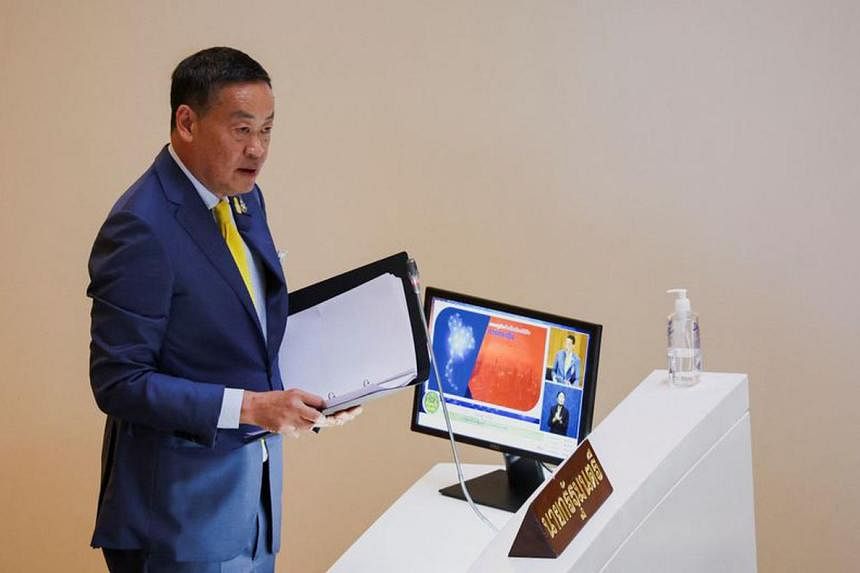BANGKOK - Faced with high household debt and lacklustre economic growth, the new Thai government will prioritise a 560 billion baht (S$21.5 billion) monetary giveaway and a series of short-term stimulus policies to trigger an economic recovery, Prime Minister Srettha Thavisin told lawmakers on Monday.
The Pheu Thai Party’s digital wallet plan promises a 10,000 baht giveaway, disbursed using blockchain technology to some 50 million Thais aged 16 and above. It will stimulate spending and cause a ripple effect that could revitalise South-east Asia’s second-largest economy, he said.
“We will inject funds into all areas of the economy to create spending, improve the quality of lives, and create opportunities for employment and businesses,” said Mr Srettha, who is also Finance Minister.
The monetary handout – the flagship election promise of Mr Srettha’s party, which leads Thailand’s 11-party coalition government – will be the “starting point for economic recovery”, he told Parliament in his inaugural speech laying out his administration’s policy agenda.
Thailand’s new Cabinet was sworn in last week following an almost four month-long political gridlock, which was broken when Pheu Thai – the runner-up in the May election – reneged on its campaign promise and allied with its long-time adversaries in the military-backed parties to form the government.
Faced with a slower-than-expected economic recovery, weak export demand, and high public and household debt, Mr Srettha – a former real estate mogul – has vowed that his administration will tackle these urgent economic and social issues quickly.
“With the current economic situation, Thailand is like a sick person who has been more affected than neighbouring countries during the pandemic,” he said, noting that the climate crisis has impacted agriculture, while geopolitical tensions have affected trade and tourism.
Mr Srettha outlined several other immediate measures that would be implemented, such as debt moratoriums for farmers and small firms, lowering electricity and fuel prices, and boosting tourism revenue by easing visa entry rules.
These initiatives came under fierce scrutiny on Monday, with several lawmakers blasting the feasibility of some of the projects and questioning the source of financing for the proposed debt moratoriums and digital wallet scheme.
Opposition politician Sirikanya Tansakul from the reformist Move Forward Party (MFP), which had been sidelined from the government camp by conservative and pro-military forces, also criticised the Srettha administration’s overall agenda, calling the policies a “wish list” with no clear details, commitments or timelines.
In his speech on Monday, Mr Srettha cited longer-term plans to expand trade and drive economic growth by developing the digital, technology and green industries.
Other goals include investing in transport infrastructure, and improving the efficiency and productivity of the agricultural sector in the hope of increasing farmers’ incomes.
“Generating income through these policies will be important to create a dignified life for Thai people, so they can have a salary and minimum wage that is fair, consistent and sufficient,” he said.
The Prime Minister also said there are plans to reform the military, a vital institution in Thai society and politics, that could lead to the end of mandatory military conscription and fewer high-level officer appointments.
Mr Srettha, whose Cabinet includes politicians from the previous military-backed government, is also looking into holding a referendum to rewrite the current junta-drafted Constitution that was installed after a 2014 coup.
This will allow for a more democratic and stable form of government, he said. However, these amendments will not extend to sections related to the monarchy.
The MFP, which won the most seats in the election, had campaigned to rewrite the Constitution. However, its plans also included amending the controversial lese majeste law that criminalises insult to the monarchy, which conservative lawmakers did not support.
The two-day parliamentary debate will span some 30 hours and is expected to conclude on Tuesday night.


